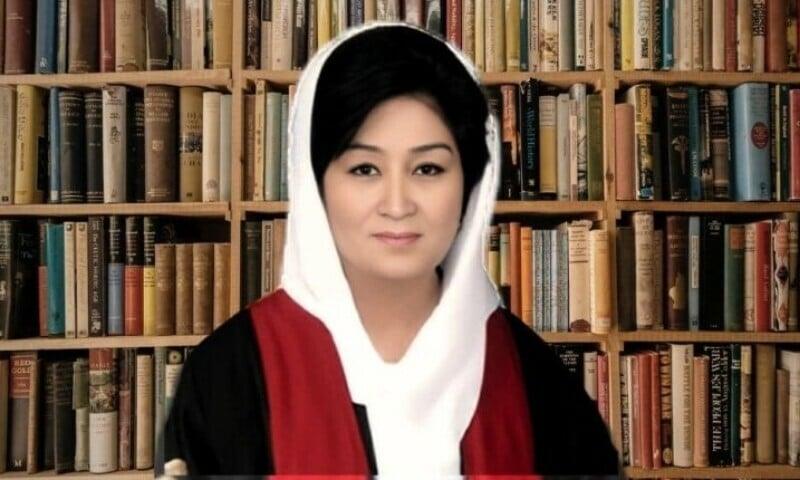Islamabad:
The Judge of the Supreme Court, Musarrat Hilali, has asked if article 8 (3) of the Constitution also applies to civilians, noting that said article is included in the Constitution only to discipline the members of the Armed Forces.
“The Constitution includes this provision only to guarantee discipline among members of the Armed Forces. When it is clear that it relates only to the members [of armed forces] So what remains [for imagination]? “The judge pointed out on Friday.
Judge Hilali was part of a bank of the Constitution of Seven Members (CB) of the Supreme Court, which is listening to the intra-Court appeals filed against a previous SC order that the forbidden trial of the protesters of May 9 by the military courts under the law of the Army of Pakistan, 1952.
Article 8 (3) of the Constitution deals with exceptions to the general rule that the laws inconsistent with or in the dispenting of fundamental rights are null.
Specifically exempts the laws related to the armed forces, the police and other disciplinary forces of the protections of articles 8 (1) and (2), as long as those laws are related to the discharge of their duties or the maintenance of the discipline within their ranks.
Judge Naeem Akhtar Afghan also agreed with Judge Hilali and declared that article 8 (3) applies only to the members of the Armed Forces. “If they applied to civilians, then that would have been mentioned clearly [in the said article]”, said.
According to Judge Afghan, during the times of the martial law, several things were included in the Constitution. Later, the political government amended the Constitution to relive it in its original form. However, governments did not touch the law of the army of Pakistan, 1952.
During Friday’s hearing, the lawyer of the Ministry of Defense, Khawaja Haris, completed his arguments before the bank led by Judge Aminuddin Khan.
In his response, Haris declared that there was not a provision to present an appeal against the order of a military court. However, people who face military trials received the right to appeal when the problem reached the federal court of Shariat. The Court ruled that a right to appeal under the Sharia was prescribed.
Judge Hasan Azhar Rizvi asked Haris how 105 people were “chosen and chosen” for military trial among thousands of people accused of resorting to violence after the arrest of former Prime Minister Imran Khan on May 9, 2023.
Khawaja Haris said it was not a matter of choosing and choosing and that the cases were sent to anti -terrorist courts (ATC) or military courts depending on their nature.
When the lawyer argued that the Martial Court is backed by the Constitution, Judge Jamal Khan Commandkhail warned him that the result of the case could be even greater than a simple proscription of the military trial of May 9 accused. He said that according to article 2 of the Constitution, there are only two types of courts: subordinate courts and higher courts.
Judge Hilali said that section 2 (1) (d) (1) was added to the Law of the Pakistan Army, 1952 later in 1967. He said that the law of the army of Pakistan, 1952 contravenes the Constitution, which, according to her, “is very tenacious.”
Section 2 (1) (D) (1) of the Law of the Army of Pakistan, 1952, defines the persons subject to the law, including those who are not otherwise subject to it, but accused of certain crimes in relation to defense establishments or the armed forces.
Specifically, it includes the persons accused of crimes under the Law of Official Secrets of 1923, related to matters of defense, naval, military or the Air Force.
Judge Hasan Azhar Rizvi said that 12 to 13 military facilities were attacked on May 9, 2023 and that these attacks were a security failure.
“At that time, measures were taken against military officers. Is any institution responsible for a military officer on May 9?” asked.
The additional attorney general responded that Pakistan Attorney General Mansoor Awan will answer that question at the next hearing. The court then postponed until April 28.




